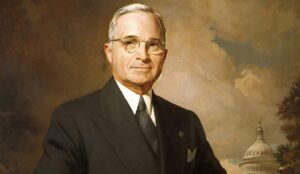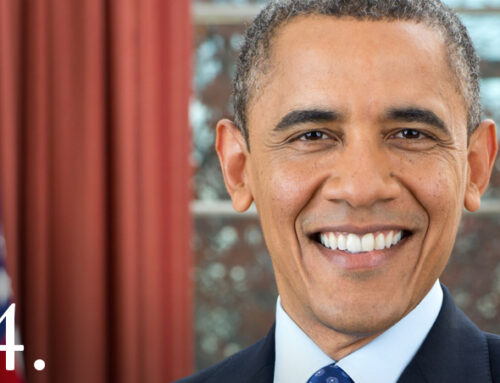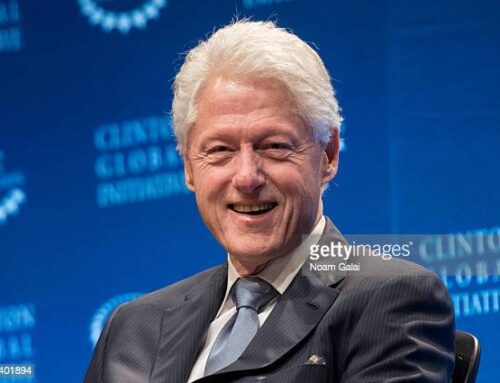Harry S Truman was the 33rd President of the United States. He served in office from 1945 to 1953, and he is best known for making the decision to drop atomic bombs on the Japanese cities of Hiroshima and Nagasaki during World War II.
Truman was born in Missouri in 1884, and he grew up on a farm. After serving in World War I, he entered politics and was elected to the U.S. Senate in 1935. He became Vice President in 1945, following the death of Franklin D. Roosevelt, and he assumed the presidency later that year.
One of Truman’s most significant achievements as President was the implementation of the Marshall Plan, which provided economic aid to Western European countries in order to rebuild after World War II. This plan was instrumental in helping to prevent the spread of communism and it laid the groundwork for a period of economic growth and prosperity in Europe.
Truman was also a strong advocate for civil rights. He issued an executive order desegregating the armed forces, and he supported the creation of the Civil Rights Commission. However, his efforts to advance civil rights legislation were largely unsuccessful due to opposition from Congress.
Overall, Harry S Truman was a decisive and effective leader who faced a number of difficult challenges during his time in office. He will be remembered for his role in bringing World War II to an end and for his efforts to promote economic recovery and civil rights.
Harry Truman was known as one of the poor presidents. Truman was so poor when he left the White House that he was forced to move into his mother-in-law’s home. His only source of income was his Army pension, which paid $112 per month. In 1958, Congress passed the Former Presidents Act, which gave him a yearly pension.
So what is there to learn from him about finance? MEDICARE. In 1968, Truman and his wife, Bess, received the first two Medicare cards. Beyond doubt, it is one important part of finance and He was the reason why the US has it in the first place. Though President LBJ signs it, Truman hold his role in it.
LBJ had traveled to Missouri to sign the Medicare Act of 1965 into law and to praise the 81-year-old Truman who, as Johnson drawled in his thick Texas accent, was “the real daddy of Medicare.”
Designed to provide health insurance for Americans aged 65 and older as well as younger citizens with specific medical conditions or disabilities, Medicare was originally divided into two categories prosaically named “Part A” and “Part B.”
Part A covered hospitalization with payroll taxes and Part B was an optional health insurance program requiring a monthly premium to cover specific outpatient services, medical tests and equipment, among other things. Back in 1965, the payroll deduction for Part A was about $40 per year and Part B cost only $3 a month!
During his administration, President Truman called for the institution of a federally funded health insurance program in 1945 and again in 1947 and 1949. Each presidential plea, however, was thwarted or ignored by the U.S. Congress, aided and abetted by powerful medical lobbies such as the American Medical Association and the American Hospital Association, which denigrated such efforts as a descent into “socialized medicine.” Harry Truman’s devotion to this cause was, in a sense, a means of honoring his former boss, Franklin D. Roosevelt who, for political reasons, was forced to remove an extensive health benefit plan from what became the Social Security Act of 1935. Parenthetically, another Roosevelt — Theodore Roosevelt — included a government-backed health plan on the platform of his failed presidential run in 1912 on the Progressive (“Bull Moose”) ticket.
There was some movement towards developing a national health care program during the Eisenhower years and even more so during John F. Kennedy’s far too brief presidency. But it was the powerful and politically savvy LBJ and the Democrats’ landslide victory in 1964 giving them control of both houses of the U.S. Congress that pushed Medicare across the federal finish line.
Here I want to come into the present, Obama administration went ahead and make the affordable care act come into the picture. So when the Trump administration tried to break it, John McCain’s simple thumbs down was way more important. It was significant. Medicare came into existence due to democrats but survived due to Republicans.
Outside of politics, It’s worth keeping health insurance as part of your portfolio for the family as health expenses can potentially destroy your wealth.




